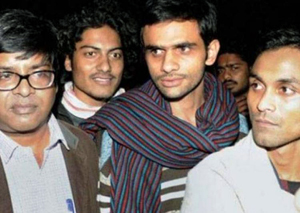Jan 17: India's "high power" communication satellite GSAT-30 was successfully launched in the early hours of January 17, the Indian Space Research Organisation (ISRO) said.
The satellite, aimed at providing high-quality television, telecommunications and broadcasting services, was launched onboard Ariane 5 rocket from French Guiana.
Blasting off from the Ariane Launch Complex in Kourou, a French territory located in northeastern coast of South America at 2.35 am IST, European space consortium Arianespace's Ariane 5 vehicle injected GSAT-30 into the orbit in a flawless flight lasting about 38 minutes.
Arianespace CEO Stéphane Israël tweeted about the successful launch of GSAT-30.
ISRO's U R Rao Satellite Centre Director P Kunhikrishnan, who was present in Kourou, congratulated the ISRO community and Arianespace team on the successful launch.
Calling it an "excellent start" to 2020 for ISRO with the launch, he said, "The mission team at the master control facility have already acquired the satellite and they will immediately complete the post launch operations...."
The 3,357-kg satellite, which was deployed from the lower passenger position of Ariane-5 launch vehicle (VA 251) into to geostationary transfer orbit (GTO), is configured on ISRO's enhanced I-3K Bus structure to provide communication services from Geostationary orbit in C and Ku bands.
The satellite derives its heritage from ISRO's earlier INSAT/GSAT satellite series, and is equipped with 12 C and 12 Ku band transponders.
GSAT-30 is to serve as replacement to the "aging" INSAT-4A spacecraft services with enhanced coverage, ISRO has said, adding the satellite provides Indian mainland and islands coverage in Ku-band and extended coverage in C-band covering Gulf countries, a large number of Asian countries and Australia.
With a mission life of 15 years, GSAT-30 is an operational communication satellite for DTH, television uplink and VSAT services.
The Bengaluru-headquartered ISRO has said the communication payload of GSAT-30 is specifically designed and optimised to maximise the number of transponders on the spacecraft bus.
According to the space agency, the spacecraft would be extensively used for supporting VSAT (Very Small Aperture Terminal) network, television uplinking and teleport services, digital satellite news gathering (DSNG), DTH television services, cellular backhaul connectivity and many such applications.
One Ku-band beacon downlink signal is transmitted for ground-tracking purpose, it added.
For its initial flight of 2020, Arianespace on its website said, it would orbit EUTELSAT KONNECT, a telecommunication satellite for the operator Eutelsat, along with GSAT-30, using an Ariane 5 launch vehicle from the Guiana Space Centre.
EUTELSAT KONNECT – which was produced by Thales Alenia Space for Eutelsat – was riding in the upper position of Ariane 5's payload arrangement, and was released first in the flight sequence at 27 minutes following liftoff.
Since the launch of India's APPLE experimental satellite on Ariane Flight L03 in 1981, Arianespace has orbited 24 satellites, including GSAT-30, for the Indian space agency.






Comments
Add new comment